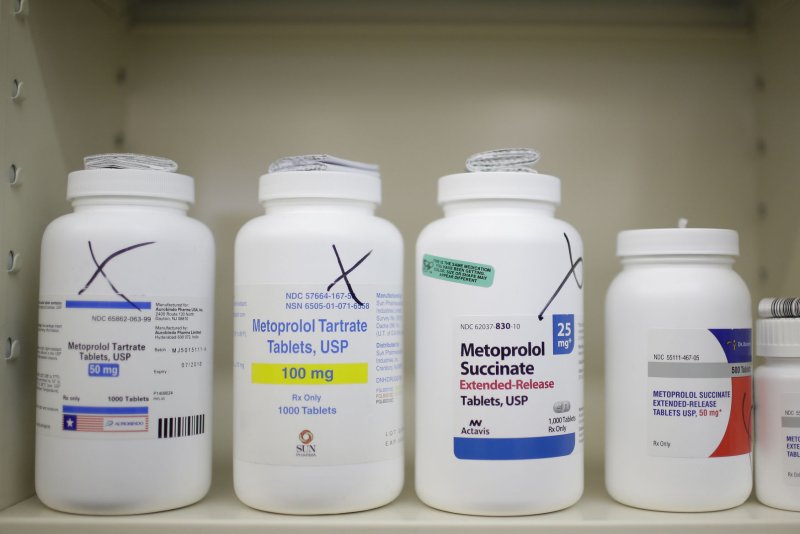The plan would allow U.S. health officials bargaining power for 250 drugs and impose fiscal penalties for companies that don't negotiate the cost of medications. File Photo by John Angelillo/UPI |
License Photo
Sept. 19 (UPI) -- House Speaker Nancy Pelosi unveiled a plan Thursday designed to lower the cost of prescription drugs by giving U.S. health officials more power to negotiate prices and financial penalties for companies that don't.
The House Democratic leader's strategy, titled the Lower Drug Costs Now Act, calls for the Department of Health and Human Services to target 250 drugs that lack competition. Under the plan, their prices would be about 1.2 times the average of the medication's cost in other nations. The plan also orders fines -- as much as 95 percent tax of a drug's gross sales -- for companies that don't negotiate price.
"This steep, escalating penalty creates a powerful financial incentive for drug manufacturers to negotiate and abide by the final price, while ensuring that patients maintain uninterrupted access to the medicines they need," a summary of Pelosi's plan states.
The health secretary would consider the research and development cost of the drug, the production cost, information on alternative treatments and the value of the drug. Domestic and international sales will also be a factor.
Under the plan, once a price is negotiated, a drug company can't raise it beyond the rate of inflation without adequate competition. It also caps what American seniors pay out-of-pocket at $2,000 per year.
Pelosi planned to introduce the proposal, labeled House Resolution 3, Thursday. Part of the plan is aimed at spurring more competition -- a major factor that typically controls the cost of any item -- and innovation.
"This proposal addresses a clear market failure that exists in our system, for extremely high-priced prescription drugs that have no competition," the proposal says. "Innovation does not benefit Americans if they cannot afford it."
Pelosi's plan will first go to the energy and commerce committee's health subcommittee. If it ultimately passes the lower chamber, it would require approval in the Republican-controlled Senate, where its prospects are far less certain. Lowering the cost of prescription drugs, however, has been a top priority of President Donald Trump's.
A similar proposal, called the Prescription Drug Pricing Reduction Act, passed the Senate Finance Committee in July but has yet to receive a full vote in the upper chamber.















